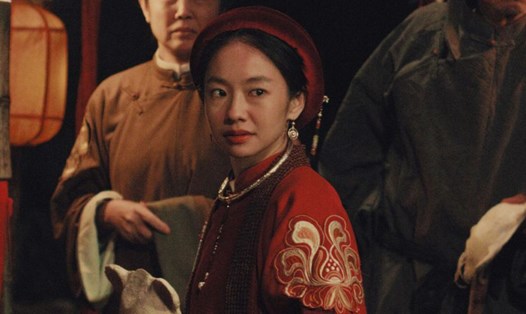Classic literary works such as "The Old Man" by Nam Cao or "The Tale of Kieu" by Nguyen Du... to best-selling books such as "Mat Biec", "Kaleidoscope", "I See Yellow Flowers on the Green Grass"... are resources exploited by many directors.
Obviously, making films inspired by these works easily attracts audiences, increasing brand recognition for upcoming film projects. However, this genre of films is unstable, not always successful in terms of revenue.
Vietnamese films inspired by famous works are unstable at the box office
The movie "Kaleidoscope" by Vo Thanh Hoa, shown in theaters from December 23, 2024 to January 13, 2025, has only 33 screenings left in all theaters nationwide, with a total revenue of 5.92 billion VND.
This can be considered the most controversial work in late 2024 and early 2025. “Kaleidoscope” is a film for teenagers adapted from the famous work of writer Nguyen Nhat Anh. Previously, the film had a very popular TV version. However, when bringing this work to the big screen, the project could not achieve the expected success.
Most recently, the film “Once Upon a Time There Was a Love Story” adapted from the literary work of writer Nguyen Nhat Anh was released in late 2024 but did not have the expected appeal. The film only earned 45 billion VND.
Not only are there film projects adapted from famous books and stories, but classic works when adapted into films also do not have a better ending. Among them, the film Kieu by director Phi Tien Son, inspired by the work Truyen Kieu by Nguyen Du, produced by Mai Thu Huyen, was released in November 2020 on the occasion of the 200th anniversary of the death of the great poet Nguyen Du and left the theater with only a few billion VND in revenue.
The film Cau Vang, adapted from the short story Lao Hac by writer Nam Cao, is a special film project - the first time a dog took on the main role in a Vietnamese film released in 2021, also suffered heavy losses with revenue of several billion VND.
In the context of Vietnamese films currently lacking good scripts, taking inspiration from famous literary works and books to make films is considered a good direction for Vietnamese filmmakers.
However, if the adaptation is not careful, it can easily cause backlash. Remember the work "Cau Vang" inspired by the story Lao Hac by writer Nam Cao, which received a strong backlash from the audience because the image of Cau Vang being poor and hungry was deeply ingrained in the audience's mind while the film crew chose a Shiba dog with a chubby appearance and not pure Vietnamese to play the role of Cau Vang...
However, there are still successful film adaptations such as “Mat Biec” which brought in revenue of 180 billion VND and was the film representing Vietnam to be submitted for the preliminary selection for the Best Foreign Language Film category at the 93rd Oscars. “Dat Rung Phuong Nam” directed by Nguyen Quang Dung is also a film inspired by classic works with one of the best revenue with 140 billion VND.
Need to change the mindset of filmmaking
In the context of Vietnamese cinema still being limited in many aspects such as weak scripts, low film budget, especially with films adapted from literary works, books, stories... the boldness of directors like Vo Thanh Hoa and Trinh Dinh Le Minh in adapting a famous work has breathed new life into it, contributing to diversifying the content of films shown in theaters in the market.
However, film adaptations are not easy because they are easily compared to the original work by the audience. Even with films that already have a television version such as Dat Rung Phuong Nam, Kinh Kaleidoscope... the comparisons from the audience are even greater.
The biggest factor that makes a work successful or not is the adaptation of the film crew. Many film crews, in order to create new details for the adapted works, have added many stories, which has the opposite effect and created conflicting controversies.
The recent box office failures of “Kaleidoscope” and “Once Upon a Time There Was a Love Story” are also lessons for film crews who want to pursue adaptations. That is to constantly continue to seek new approaches, learn from, and survey audience opinions.
In fact, every film market must have filmmakers who dare to think, dare to do and be bold with their direction.









